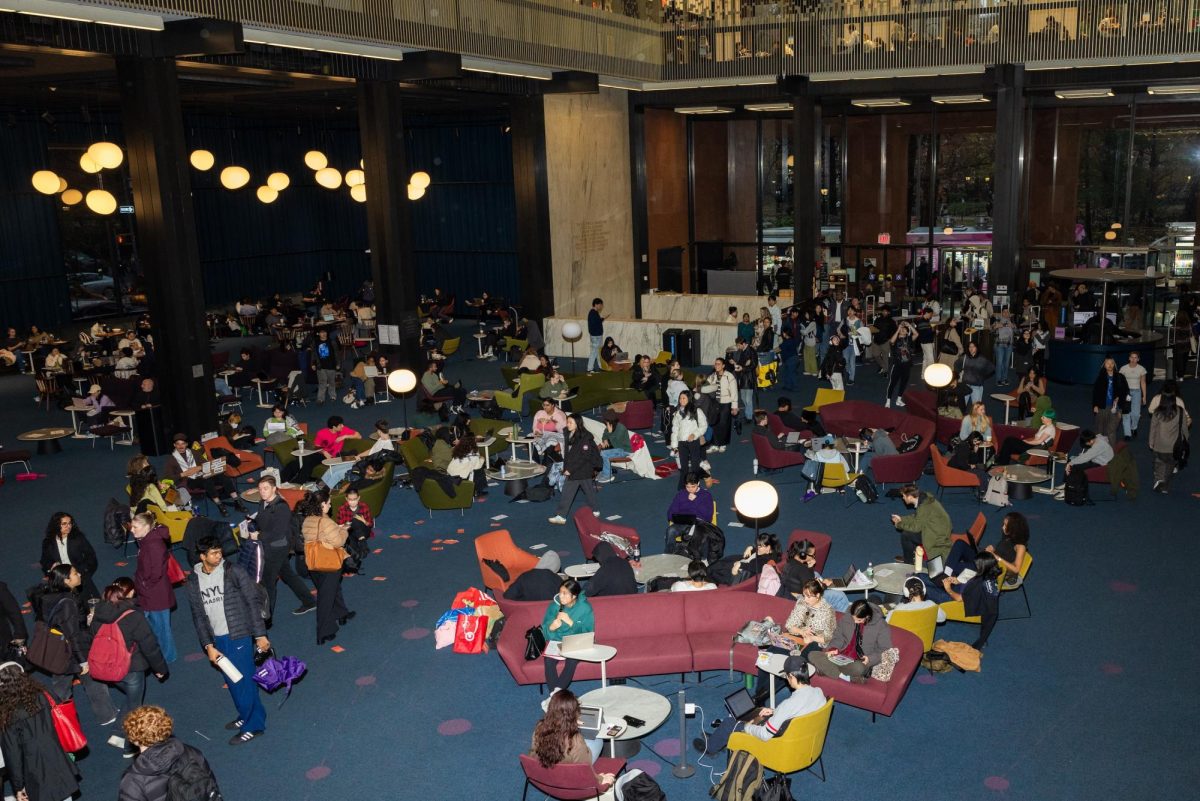In the past month, NYU suspended 13 students and placed 20 others on probation for at least a year for their participation in a pro-Palestinian sit-in last semester. The students were accused of “engaging in behavior that substantially disrupts” university operations and violating student conduct guidelines. This crackdown on pro-Palestinian speech is indicative of NYU’s aggressive response to protests against Israel’s war on Gaza in the last academic year. Since October 2023, the university has suspended students and faculty, terminated employees and arrested dozens within its own community. Though several demonstrations were met with backlash from the university, NYU’s latest response to dissent exhibits an alarming lack of precision — operating on assumptions of involvement rather than concrete infractions.
The protesters, a group of students and faculty, staged a sit-in on Bobst Library’s 12th floor with dozens more participating in a study-in on the first floor, demanding that NYU disclose its investments and divest from companies with ties to Israel. Immediately following the demonstration, the Office of Student Conduct sent dozens of emails to students — virtually identical in their accusations of disruptive and prohibited behavior.
Multiple sources spoke to WSN, claiming that several students who were merely in the vicinity of the protest faced disciplinary action despite having no involvement in the December action. Others were charged with violating university policy without proof of misconduct. A staff photographer on assignment for WSN even received the same email alleging that they had violated university policy, including occupying the 12th floor of Bobst, blocking access to elevators and stairs, and refusing to relocate when directed by safety personnel — all of which were false.
In universitywide memos and statements to WSN, NYU framed the sit-in as disruptive, aggressive and one that took hours to contain and control. A university spokesperson stated the university was “profoundly disappointed that a group of students began a loud, disruptive demonstration in the university’s main library, which is filled with students studying for final exams” and “would be so insensitive to the rights of other students.”
WSN reporters on the scene and students involved in the five-hour-long demonstration said that chanting took up about 15 minutes and that the action was largely made up of students sitting with signs and quietly studying — a vast contrast to President Linda Mills’ account of the day as disruptive, non-peaceful and insensitive. The administration’s exaggerated portrayal of the protest is a method of justifying its inflammatory response.
This is a stark departure from how NYU has handled similar demonstrations in past years. In 2014, students staged a die-in in Bobst’s lobby in response to the killing of Michael Brown and Eric Garner, where roughly 300 students and faculty members laid down for 45 minutes. Though the protest was significantly larger and garnered more attention, the administration’s response was far less severe. Despite repeatedly stating otherwise, NYU’s rhetoric in recounting the December pro-Palestinian sit-in and its severe, punitive response suggests this overreaction is rooted less in policy or student conduct, but more in the political content of the protest.
These disciplinary measures do not stop at accusatory emails and intimidating conduct meetings — they actively inconvenience the lives of students, some of whom are international students or on scholarships. Those issued persona non grata status — including faculty members involved in the protest — were barred from accessing several university buildings, at risk of losing housing and having their scholarships revoked. Those faced with hearings and suspensions are thrown into uncertainty, their classes and academic standing put at risk.
NYU has manufactured a fear of retaliation that hovers over campus activism, one that extends beyond those explicitly targeted. It is irresponsible for the university to destabilize students’ lives by stripping them of their financial and academic status as a means of scaring them off from engaging in dissent. If NYU is to take disciplinary action on protesters, there must be just cause and due process.
WSN’s Opinion section strives to publish ideas worth discussing. Opinions expressed in the house editorial reflect the views of WSN’s Editorial Board.
Contact the Editorial Board at [email protected].























































































































































